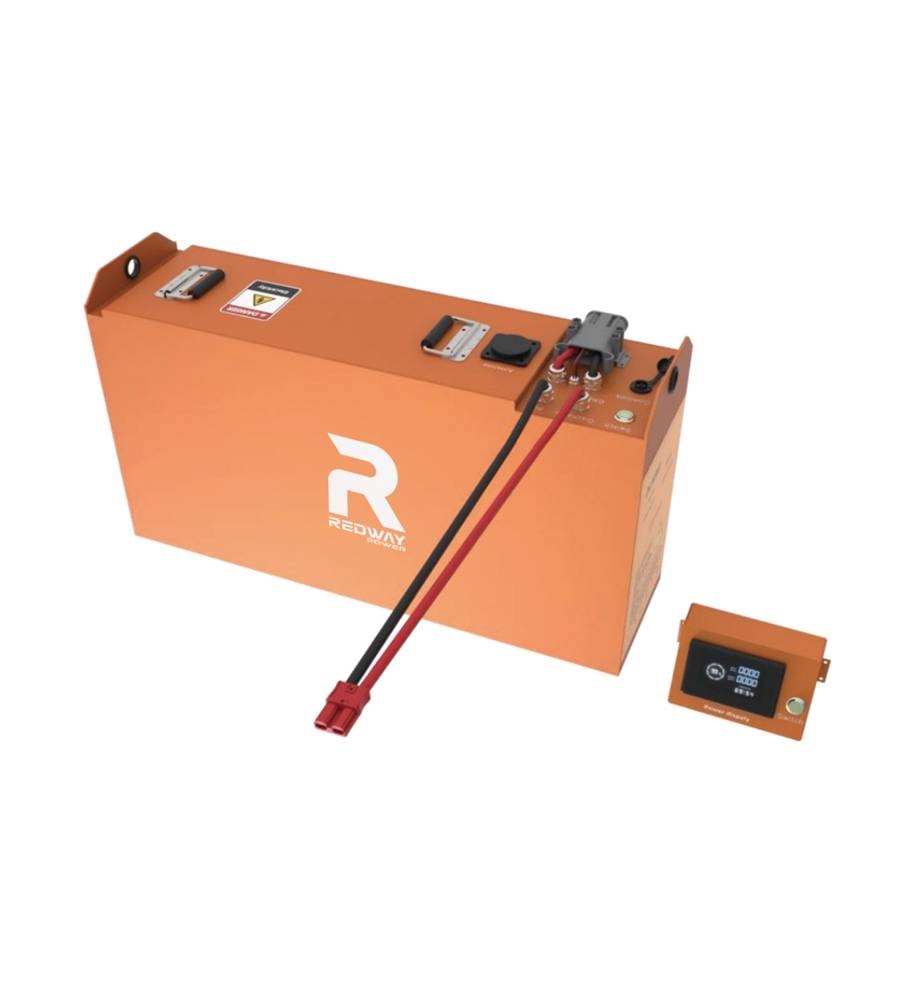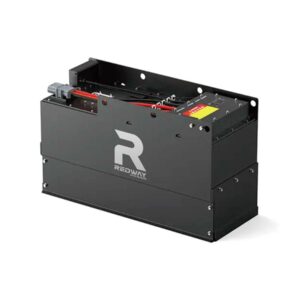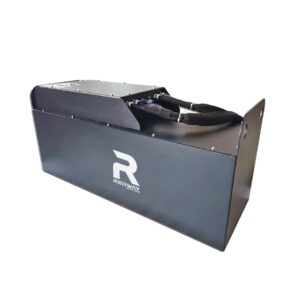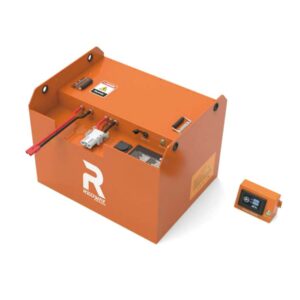Description
Our 48V 460Ah LiFePO4 Forklift Battery is a high-performance lithium battery solution designed for demanding industrial applications. As a leading lithium battery manufacturer, we specialize in OEM partnerships, delivering robust energy storage with extended cycle life, superior safety, and seamless integration for forklifts and heavy machinery.
Key Features
Longevity & Efficiency: Built with LiFePO4 chemistry, this battery exceeds 4,000 cycles at 80% depth of discharge (DOD), ensuring years of reliable operation. The 15.56kWh nominal energy capacity supports extended runtime, minimizing downtime.
High Power Output: With a 300A continuous discharge current and 600A peak surge (5s), it effortlessly powers high-demand equipment.
Durability: Featuring an IP65-rated metal shell, natural cooling, and a wide operating temperature range (-20¡æ to 60¡æ), it thrives in harsh environments.
Smart BMS: Advanced monitoring protects against overcharge, overdischarge, and short circuits while providing real-time data via RS485, CAN-bus, or 4G.
Product Description
This 51.2V lithium battery combines a compact design (940 x 260 x 520 mm) with a lightweight profile (~164 kg), making it ideal for space-constrained installations. Tailored for OEM battery integrations, it offers flexible communication protocols and a 5-year warranty, underscoring our confidence in its performance. The 40V¨C58.4V operating range and rapid 150A charging ensure compatibility with diverse industrial systems.
Safety & Compliance
Engineered for safety, the battery¡¯s LiFePO4 cells inherently reduce thermal runaway risks. The multi-layered BMS safeguards cell voltage, temperature, and current, meeting global industrial standards. As a trusted lithium battery manufacturer, we prioritize certifications and reliability for wholesale buyers seeking scalable, future-proof solutions.
Applications
Ideal for electric forklifts, AGVs, and renewable energy storage systems, this OEM-ready battery adapts to commercial and industrial needs. Its high discharge rates and rugged design make it a top choice for logistics, manufacturing, and off-grid power solutions.
The 48V 300Ah LiFePO4 forklift battery delivers high-capacity, reliable, and safe power designed for heavy-duty forklifts and material handling equipment. Featuring advanced lithium iron phosphate chemistry, an intelligent battery management system (BMS), and fast charging capabilities, this Heated Battery product offers extended cycle life, reduced maintenance, and enhanced operational efficiency in demanding industrial environments.
What Are the Technical Specifications of the 48V 300Ah LiFePO4 Forklift Battery?
The 48V 300Ah LiFePO4 forklift battery typically operates at a nominal voltage of 51.2V with a capacity of 300Ah, providing approximately 15.36 kWh of energy. It supports continuous discharge currents up to 300A and peak discharge currents up to 600A for short bursts. The battery weighs between 120 to 135 kg depending on design and measures approximately 728 x 350 x 530 mm. It features a robust metal or ABS housing with IP54 to IP65 protection ratings. The integrated BMS manages voltage, current, temperature, and state of charge to ensure optimal safety and longevity.
| Specification | Value |
|---|---|
| Nominal Voltage | 51.2V |
| Capacity | 300Ah |
| Energy | 15.36 kWh |
| Continuous Discharge | Up to 300A |
| Peak Discharge Current | Up to 600A (short bursts) |
| Weight | 120-135 kg |
| Dimensions (L x W x H) | 728 x 350 x 530 mm |
| Housing Material | Metal/ABS |
| Protection Rating | IP54 – IP65 |
| Cycle Life | >3500 cycles at 70-80% DOD |
| BMS Current Rating | 300A |
How Does LiFePO4 Chemistry Enhance Forklift Battery Performance?
LiFePO4 chemistry offers superior thermal stability, safety, and longevity compared to traditional lead-acid batteries. It provides higher energy density, faster charging, and lighter weight, enabling forklifts to operate longer with less downtime and reduced maintenance.
Why Is the Battery Management System (BMS) Critical for Forklift Batteries?
The BMS continuously monitors cell voltages, current, temperature, and state of charge to prevent overcharging, over-discharging, short circuits, and overheating. It balances cells to maximize battery life and ensures safe, reliable operation in harsh industrial environments.
How Long Does the 48V 300Ah LiFePO4 Forklift Battery Last?
With over 3500 full charge-discharge cycles at 70-80% depth of discharge, this battery can last 8-10 years or more depending on usage and maintenance. Its extended lifespan reduces replacement frequency and total cost of ownership compared to lead-acid alternatives.
How Fast Can the 48V 300Ah Battery Be Charged?
The battery supports fast charging, typically fully charging within 3 to 5 hours depending on charger specifications and current. This rapid charging minimizes forklift downtime and improves operational efficiency.
Which Forklift Models Are Compatible with the 48V 300Ah LiFePO4 Battery?
This battery fits a wide range of 48V forklifts, pallet jacks, electric stackers, and industrial vehicles designed for lead-acid battery replacements. Its modular design and standard connectors facilitate easy retrofit and integration.
How Does the Battery’s Weight and Size Compare to Lead-Acid Alternatives?
Weighing between 120 and 135 kg, the 48V 300Ah LiFePO4 battery is significantly lighter than equivalent lead-acid batteries, improving forklift maneuverability and reducing wear on components. Its compact design optimizes space utilization.
What Safety Features Make LiFePO4 Forklift Batteries Superior?
Beyond the BMS, LiFePO4 chemistry is inherently safer, with no risk of acid leaks or explosions. The battery’s IP54 to IP65 rating protects against dust and water ingress, and the sturdy housing withstands industrial impacts, ensuring reliable operation in tough environments.
How Can Users Monitor and Maintain the Battery?
Many Heated Battery LiFePO4 forklift batteries include optional CANBus or RS485 connectivity for real-time monitoring of battery health, charge status, and temperature. Maintenance is minimal, requiring no watering or equalization.
What Environmental Advantages Do LiFePO4 Forklift Batteries Offer?
LiFePO4 batteries are more environmentally friendly than lead-acid batteries due to longer lifespan, higher energy efficiency, and absence of toxic lead or acid. Their recyclability and reduced hazardous waste contribute to sustainable industrial operations.







